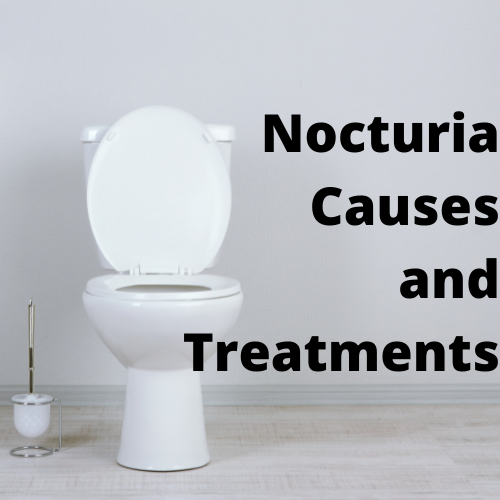
Nocturia is a term for a condition in which you take multiple trips to the bathroom at night. These constant disruptions cause you to constantly wake up to take a trip to the bathroom, which interrupts your attempt at a good night's sleep. You make awaken in the morning and find yourself feeling drowsy or extremely tired throughout the day. If this happens more often than not, and you are not proceeding bedtime with a large intake of water, then there may be some underlying diseases or disorders that you need to address. Please continue reading to find out more about what may be causing your multiple bathroom stops.
Causes of nocturia
Nocturia can be caused by several disorders and diseases, depending on the type. There are three types of nocturia, including: polyuria, nocturnal polyuria, and nocturnal urinary frequency.
Polyuria means that you urinate more than 3000 mL in 24 hours. This is highly abnormal and means that too much water is being filtered by the kidneys, or not enough water is being reabsorbed by your body because something is in your urine that is pulling water out of the body (i.e. glucose). Polyuria can be caused by high fluid intake, untreated diabetes, or diabetes insipidus, or gestational diabetes.
Nocturnal polyuria are those who only have a high volume of urine at night. This is normally due to the fact that during the day, there is excess fluid or water in the legs or lower body. And then, at night, when you are laying down and gravity no longer impacts you, your kidneys can filter and excrete that extra fluid. This is normally caused by congestive heart failure, edema of the lower extremities, or sleep disorders like obstructive sleep apnea. Certain diuretics and cardiac glycosides, or other medications, can also cause nocturnal polyuria.
Nocturnal urinary frequency is when you may urinate in smaller amounts, but at a much higher frequency. The total amount of urine does not increase, however the bladder may have trouble fully emptying or having trouble sleeping and going to the bathroom without truly needing to. If your bladder is unable to empty, this may be caused by bladder obstruction, benign prostatic hyperplasia in men, bladder overactivity, bladder infection or urinary tract infection, or another malignancy in the bladder.
Nocturia symptoms
Normally, people can go 6-8 hours at night without having to go to the bathroom. When you go to sleep, your body signals to the bladder and the kidneys that not a lot of water needs to be excreted so you do not have to go to the bathroom as much. If this isn't the case, and someone has to wake up more than once a night to urinate, or they are urinating more volume, then a diagnosis of nocturia should be considered.
Nocturia is diagnosed by your provider who will perform a thorough history and physical to determine how long you've been experiencing your symptoms, and how severe they are. You should be recording any medications that you are taking, suspected UTIs, sexual health, and how often you are waking up in the night to go to the bathroom.
Depending on your history and physical, your doctor may order a urinalysis or imaging to check for infections or any obstructions that may be causing the problem.
Nocturia treatment
Nocturia may or may not be treatable depending on the underlying cause. If you see your primary care physician, they may refer you to a urologist to address the underlying issue. If the underlying issue is something reversible, then so may the nocturia.
However, if kidney failure, heart disease, or another serious condition is determined to be the underlying cause, then it may be more difficult to treat the nocturia.
Some interventions that urologists or another physician may offer are fluid restrictions in the evening, time intake of diuretics, afternoon naps, leg elevation, or compression stockings.
Some of the medications that may also help are anticholinergic medications for an overactive bladder, loop diuretics to help regulate urine production, or desmopressin that help the kidneys reduce their urine production.
If you find yourself still struggling with insomnia while you are in the processes of working with a health professional on your nocturia, please click below and take the free online sleep test to improve your sleep!
[Sources:]
https://my.clevelandclinic.org/health/diseases/14510-nocturia

